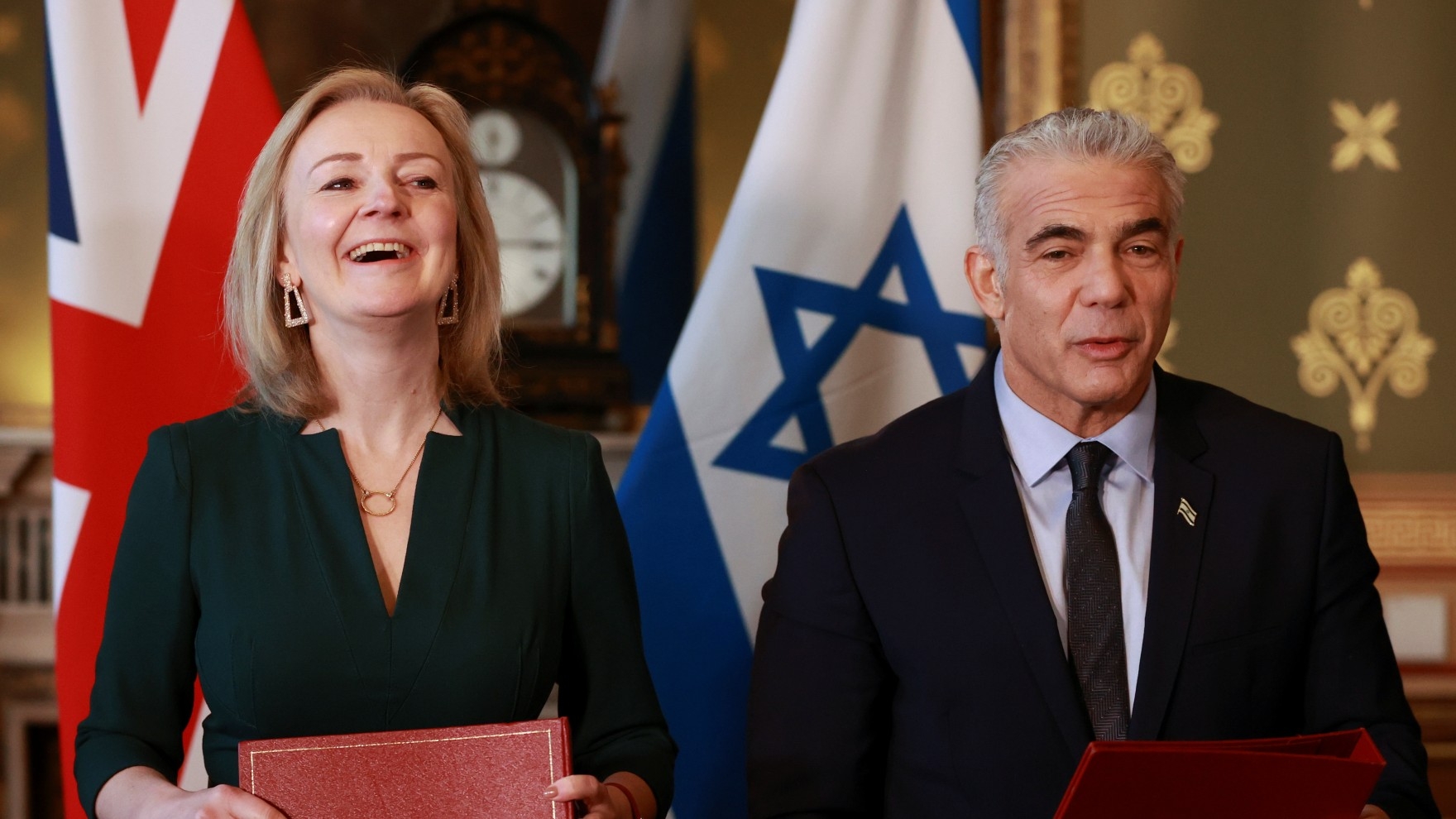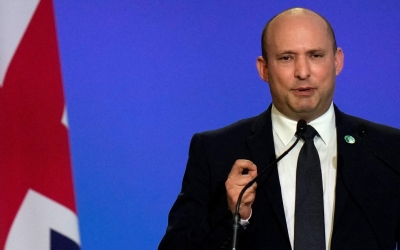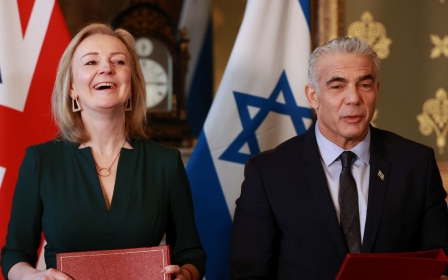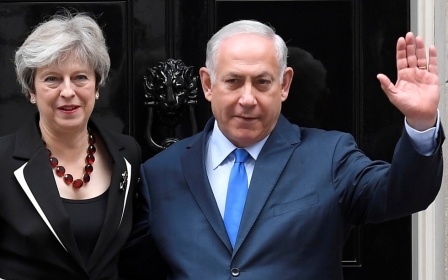UK trade deal with Israel sends a clear message: Apartheid is rewarded

The UK's Department for International Trade is currently considering public submissions ahead of negotiations for a new Free Trade Agreement (FTA) with Israel.
In a joint piece for the Telegraph in November, UK Foreign Secretary Liz Truss came together with Israel's foreign minister, Yair Lapid, to celebrate the prospect of transforming a "close friendship" into an "even closer partnership" through "a new strategic plan for the next decade, spanning cyber, tech, trade and defence".
On 29 March, UK chief negotiator for the agreement, James Clarke, appealed directly to readers of the London-based Jewish Chronicle to "help shape" discussions ahead of a new bilateral trade agreement.
Both of these pieces provide a telling indication of how the British government intends to negotiate this trade deal, namely without consideration of the broader political and human rights context, and without factoring in or actively consulting with all of the communities who stand to be affected by this deal - most notably Palestinians, whether in Palestine or here in the UK.
A short-sighted policy
New MEE newsletter: Jerusalem Dispatch
Sign up to get the latest insights and analysis on Israel-Palestine, alongside Turkey Unpacked and other MEE newsletters
The government’s promotion of an enhanced trade deal is perhaps unsurprising: the current UK-Israel relationship is worth almost £5bn. And yet, the deepening of ties with Israel, while it continues to impose its system of control over the Palestinians and persistently violates international law, is not only morally and legally questionable, but short-sighted.
Israel’s violations of international law have been well-documented over almost three quarters of a century.
Numerous UN resolutions, legal opinions, and international reports confirm the illegality of Israel’s settlement enterprise and associated violations, a position at least formally reflected in UK foreign policy.
As the Israeli government routinely announces the expansion of settlements throughout the entirety of the territory between the Mediterranean Sea and Jordan River, it also continues to fully integrate those settlements, including the production and manufacturing industries, financial services, and many other types of business that profit from the expropriation of Palestinian land and resources.
A free trade deal would effectively help to maintain this illegal situation.
British complicity
An FTA in this context also stands to make British businesses and citizens complicit in human rights abuses, despite commitments made by the British government to the UN Guiding Principles on Business and Human Rights, through its National Action Plan.
It also sends a message to the Israeli government that not only will the continued killing, maiming, forced expulsions, residency revocations, mass political incarcerations and denial of rights of Palestinians be tolerated by the UK, but materially rewarded.
A prospective FTA is only one of a number of ways in which the message is being projected by this British government.
Britain has still to show any signs of engaging with an ever growing body of evidence that Israel’s laws, policies, and practices meet the legal definition of apartheid
Voting against recent UN Human Rights Council resolutions on Palestinian self-determination and Israeli settlements, in stark contrast to the international consensus, and opposing the investigation of the International Criminal Court into Israeli war crimes, serve to actively shield the State of Israel from accountability.
The continued failure of the British government to challenge Israel’s criminalisation of six human rights organisations - condemned by UN experts as a frontal attack not only on Palestinian human rights but on human rights everywhere, and fully at odds with the UK’s commitment to human rights defenders - provides yet another indication of this position.
And the British government has still to show any signs of meaningfully engaging with an ever growing body of evidence from Palestinian, Israeli, and international human rights organisations - most recently Amnesty International, Human Rights Watch, and the UN Special Rapporteur - that Israel’s laws, policies, and practices meet the legal definition of apartheid.
Post-Brexit era
In a post-Brexit era, Britain has an opportunity to be a leader in negotiating diplomatic relationships based on respect for human rights and the rule of law.
Continuously failing to hold Israel accountable to universal standards calls into question the British government’s own commitment to these principles and its credibility on the international stage, particularly at a time when international law and mechanisms are being invoked in other contexts, and trade and diplomacy are being used as tools to promote accountability in other parts of the world.
Fundamentally, signing a free trade agreement at this time would send a clear message: that continued settlement expansion, annexation, and apartheid are actions to be rewarded, rather than to be held to account.
Without conditionality on human rights or any other mechanisms for accountability, how can an enhanced trading relationship be understood by Israel, or indeed any other state actors observing this deal, as anything other than support for legal violations and war crimes?
And, as the balance of power tips further in favour of the perpetrator of these violations, how can this move achieve anything but take us yet further from a just future for all?
The views expressed in this article belong to the author and do not necessarily reflect the editorial policy of Middle East Eye.
Middle East Eye delivers independent and unrivalled coverage and analysis of the Middle East, North Africa and beyond. To learn more about republishing this content and the associated fees, please fill out this form. More about MEE can be found here.





